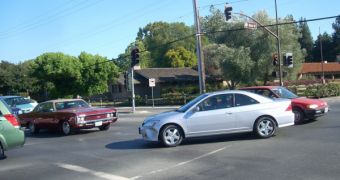New research published recently shows that older adults who are very stressed react violently to potentially-hazardous situations, including those that may occur while in traffic. Their teenagers on the other hand proved more “cold-blooded” on the matter, showing less stress while behind the wheel. The find was published in the last issue of the journal Psychological Science, by researchers at the University of Southern California (USC).
"People haven't looked at how stress affects decision making, even though so many of our decisions are made under stress. There's very little information about this whole topic, and, when you get to age differences, there's even less. This is the way life is, quite often. To make more money in your investments, you have to take risk. To end up dating someone, you have to take the risk of going up and saying hello. When there's a potential payoff, most of the time you have to take some risk," explains lead study author Mara Mather, from the School of Gerontology at USC Davis.
During the new study, two groups of volunteers, each composed of adults and teenagers, were studied in conditions mimicking those on the roads. The difference between the two groups was that members of the test one were asked to keep their hands in cold water for 3 to 5 minutes, whereas those in the control group were not. All participants were then asked to conduct a computer simulation of driving on a highway, where street lights were blinking yellow, and the time they stayed yellow before turning red varied.
Naturally, the test was designed to determine how many risks adults and teenagers take under stress and free of it. In the control group, adults scored better marks in simulations, demonstrating a better knowledge of traffic rules and better anticipatory abilities. However, in the test group, researchers found that a hormone called cortisol, produced in higher quantities, forced the adults to be more paranoid about the way they drive, while teenagers scored constant results.
"The brain regions that are involved in and activated by stress overlap quite a lot with the brain regions that are involved in decision making and, in particular, in decisions about risk," Mather says. On the other hand, in the control group, pre- and post-test levels of cortisol remained the same, which could account for the difference between the scores the two groups got.

 14 DAY TRIAL //
14 DAY TRIAL //